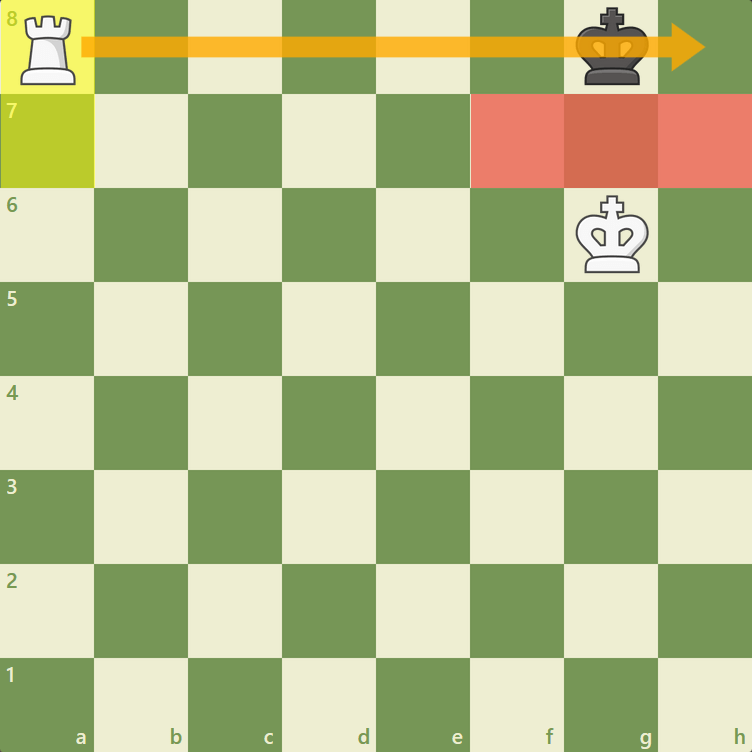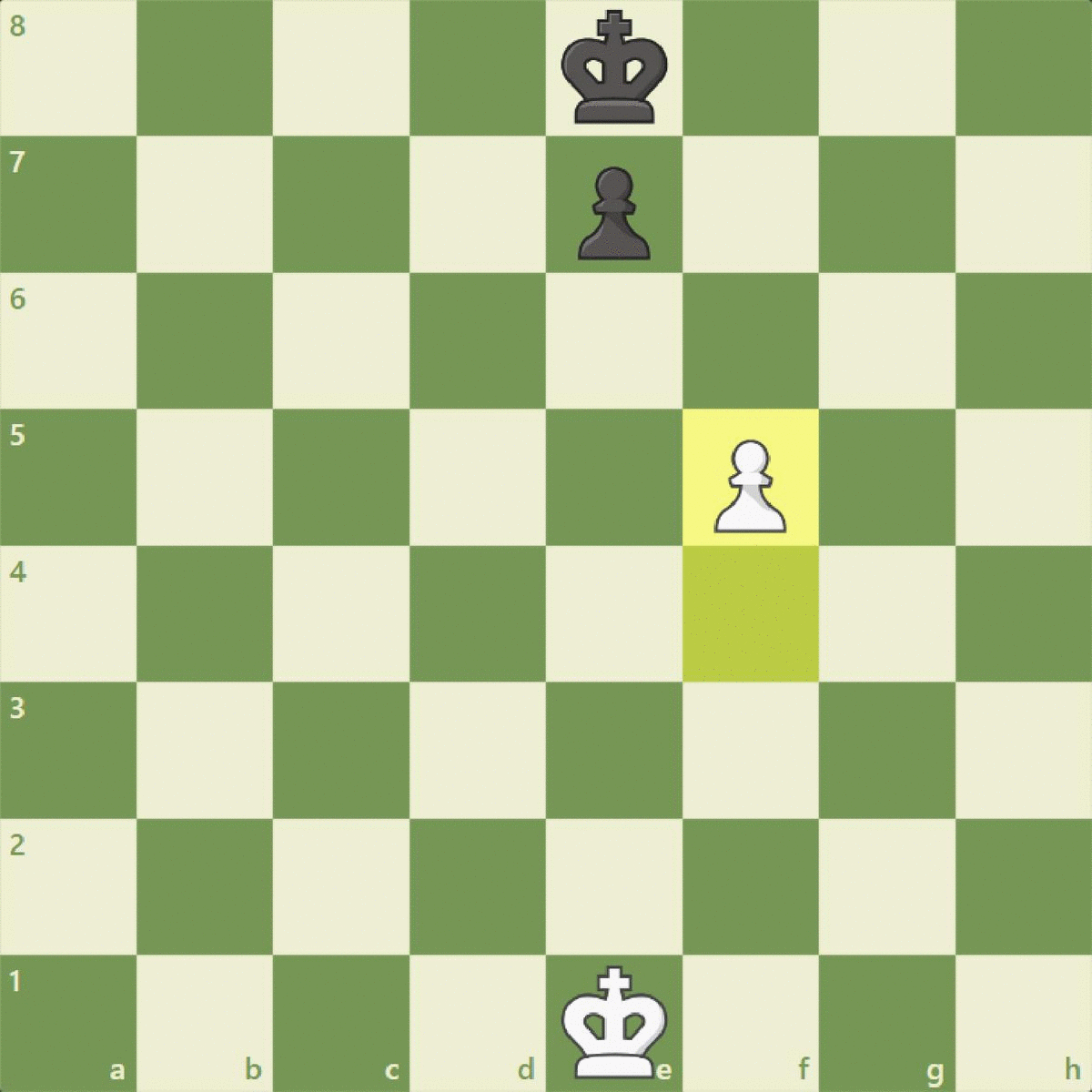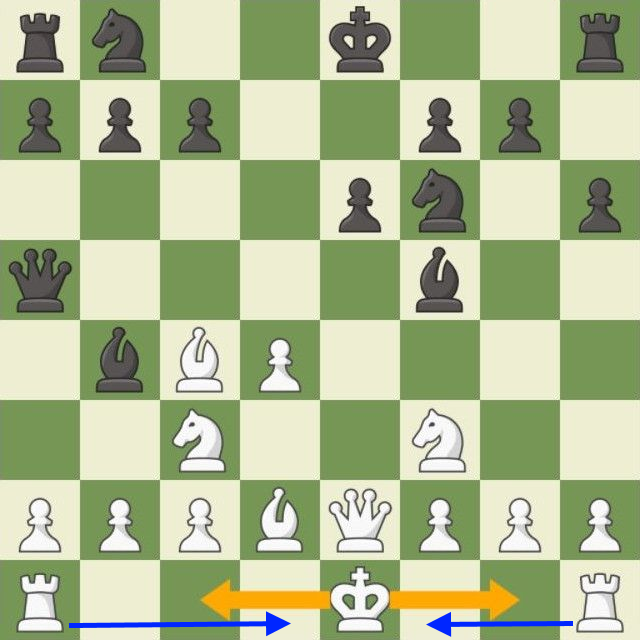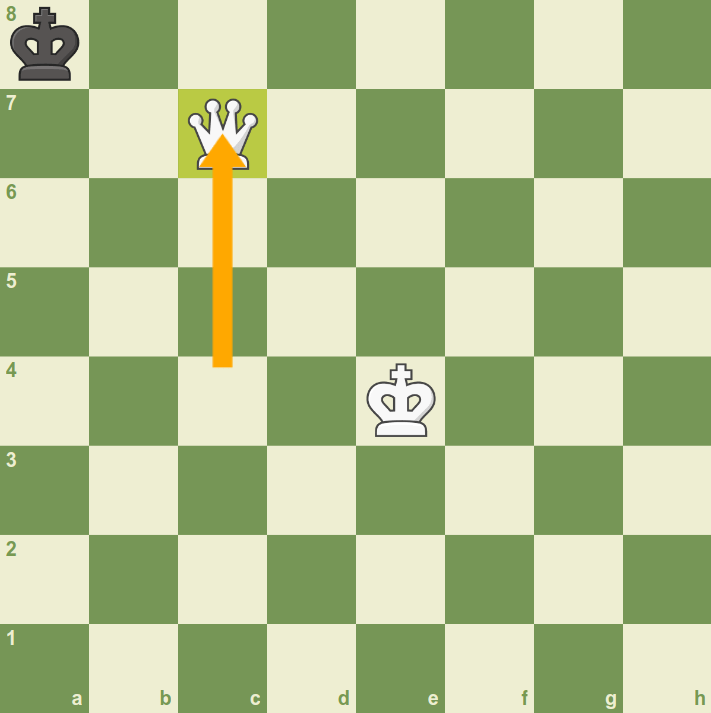A King is in check, when it is attacked by the opponent’s piece. The King can never be captured. A King must get out of the check immediately by either: by moving the King, by capturing the piece that gave the check or or by blocking the check with one of the pieces of his team. This is impossible if the check was given by the Knight.


If the King cannot escape from the check, the position is checkmate and the game is over.
The possibility of en passant Pawn capture arises when the opponent’s Pawn has just moved from its starting position two squares ahead and our Pawn is next to it. This kind of capture is only possible at this time and cannot be done later.


The King moves two squares in the direction of the Rook, the Rook jumps over the King and lands on the square next to it. You cannot castle if: the King is in check, if there is a piece between the Rook and the King, if the King is in check after castling, if the square through which the King passes is under attack or if the King or the Rook has already been moved in the game.
There are three possible results in a chess game. If neither side wins, the game is a draw. A draw can be achieved by either: Stalemate. When a player whose turn it is has no legal moves by any of his/her pieces, but is not in check, Perpetual check & three times repetition, Theoretical draw or Draw agreed by the players.
